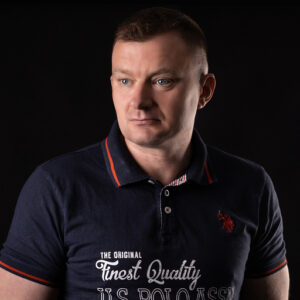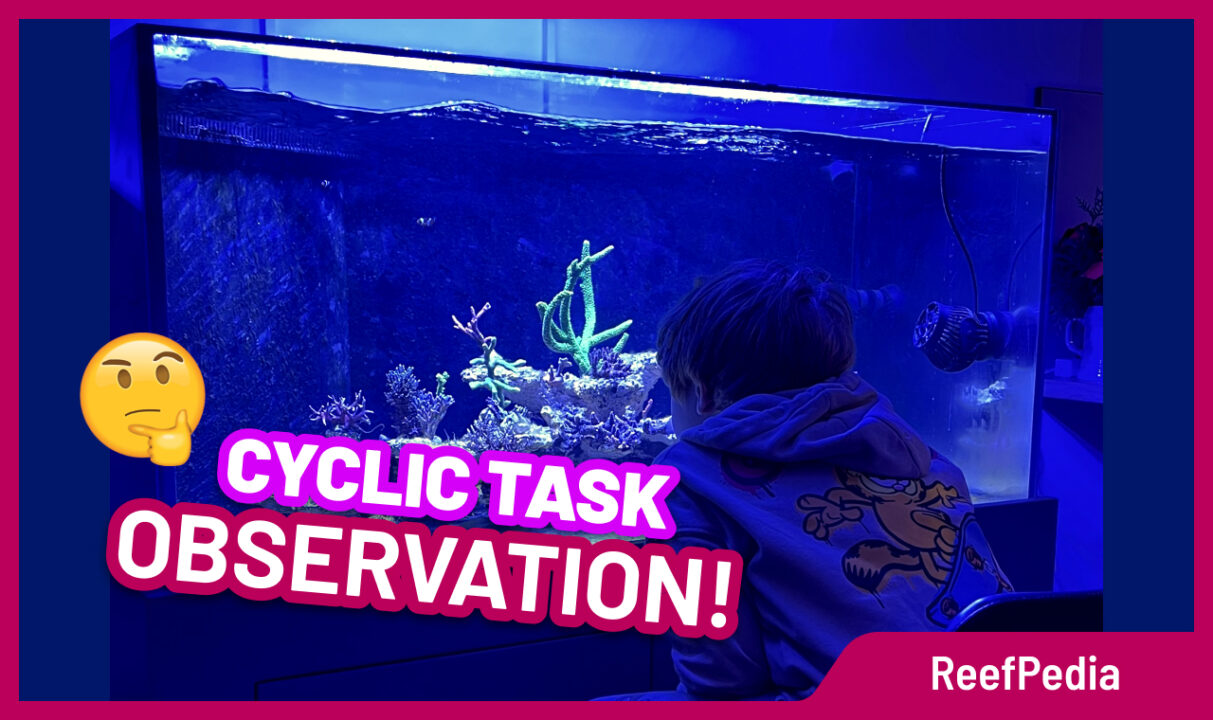This article is part of the “Cyclic tasks” series, intended for beginner aquarists who are looking for the basics of running a saltwater aquarium, or for those who are considering setting up a tank and want to understand the amount of work involved.
In the article What work on the aquarium should be done periodically you’ll find a complete list of tasks, along with links to articles that expand on individual topics.
In the article you’re reading right now, I want to introduce you to the daily task of keeping an eye on the health of your animals and the signals to watch out for in your aquarium to make sure everything is fine.
Watching your fish
What to pay attention to when observing fish in the aquarium daily?
This activity can be done while feeding the fish. We check whether the fish eat, whether they’re swimming lively, whether they have any signs of disease or wounds on their bodies. Of course, we also check if the number of fish is still the same.
If we detect an anomaly, we must react, determine the cause and perform corrective actions. For example, if we detect smallpox in a fish at an early stage and determine that stress may be the cause, then we should start feeding the fish more abundantly. It’s always worth checking the pH in a tank with fish (I recommend reading the article about the importance of pH).
Articles on dealing with fish related problems will be gradually added to our knowledge base – ReefPedia.
Watching your corals
Every day, when observing corals, we first pay attention to whether they polyp, then we check if any of the corals show loss of tissue, which is especially important in SPS. We also pay attention to mechanical damage. With SPS corals, we check colors that can be an indicator of deficiencies or overdoses.
It is also worth watching if the corals are not tipped over. If we have large snails and a sea urchin in the tank, we will notice the consequences every day, e.g. in the form of overturned grafts.
Make sure there are no traces of parasites on the corals.
If it turns out that the corals have problems – we check the parameters, send the sample for ICP analysis and look for other causes. The reasons may vary.
It happened to me once that an acropora started bleaching, even though the system was really stable. At first I thought it was a coincidence. Nothing changed on the following day. Only after checking the history of temperature measurements on Thermo control, it turned out that at night my temperature would temporarily drop to 22 degrees. I added a second heater and the problem was solved.
Aquarium observation
Observation of the entire tank is crucial. Here’s what we should pay attention to:
- Whether diatoms appear on the sand – it may be a signal that we have too much silicates in the aquarium
- Early signs of dino or cyano
- Unwanted algae, especially invasive ones
- It is also worth watching for wild crabs
- Whether there are no unwanted snails or parasites on the glass
- Cleanliness of wavemakers and whether the strength and method of circulation are appropriate
- I also recommend checking whether the level of calcareous algae increases or decreases
If we see a problem – we react. In the “Problem solving” section of ReefPedia you will find many helpful articles.
Summary
Observing the animals and the tank, like the other topics in this series, seems trivial, but once you start exploring the topic, it turns out that there are a lot of things you need to know so that later on you don’t have to learn from your own mistakes.
Thank you for your attention! I encourage you to read more articles. Gaining knowledge is the key in our hobby.
About the author

Marek Protasewicz
Reefkeeping has been my passion for over 10 years now. I love learning. The hobby has taught me many valuable lessons, patience being the best example.
Combining work and passion is my path. I run Crazy Coral, a marine aquarium shop, for a number of years. Building this business from the scratch I learnt from my own mistakes at a heavy cost.
Later I managed a project aimed at development of methods for quick growth of Corals in non-natural conditions. The project was carried out by Get Sales, Poland.
Presently, I am responsible for distribution strategy at Reef Factory, of which I am a
co-founder. The company produces smart devices for marine aquaristics.
The last projects I have been involved in are Social Reef and ReefPedia.



